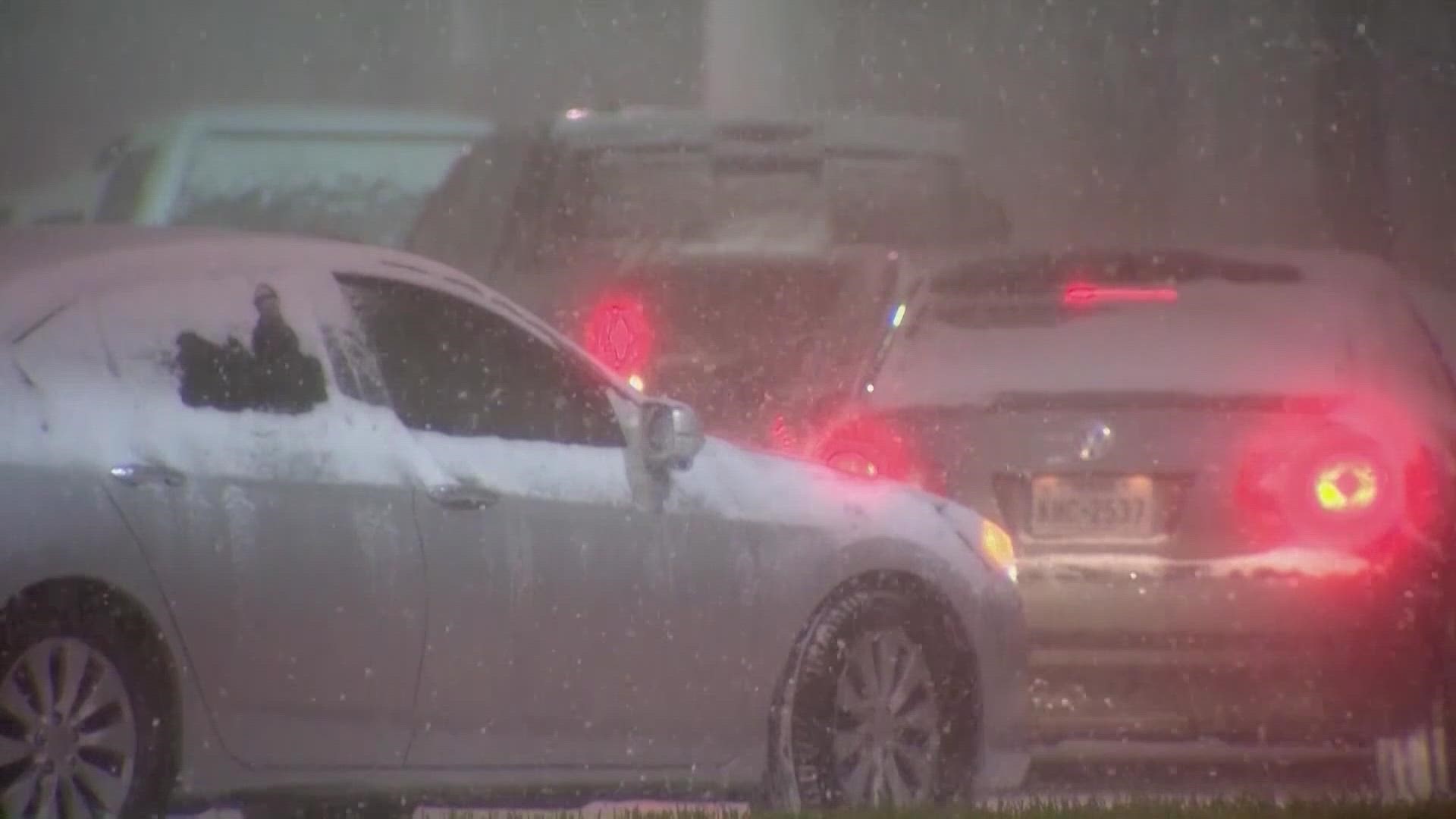SAN ANTONIO — With temperatures plunging, shelters at reduced capacity because of COVID and homeless people out in the cold, many people are wondering how to help.
One westside community advocate with years of experience shares some of her best tips for what's really helpful - and what's not - when it comes to saving lives when it's freezing.
Susana Segura has a list of inexpensive every day items that mean the most.
"My top five items: hats, gloves, socks, waterproofing like tarps or Mylar blankets and light weight blankets. If you are donating items to houseless camps, or houseless folks, it's a lot easier to buy inexpensive items, because things like socks, for example, become disposable," Segura said, adding that socks aren't just for feet.
"Socks can also function as emergency gloves and they can keep your arms warmer underneath a jacket or sweater," Segura said.
Segura is well known in her west side neighborhood off Colorado Street for helping anyone in need. Segura said donors bring her items knowing she will immediately put them to good use with the people who need them the most.
"One of the donations that is coming in right now is that we're getting a lot of hats and gloves. Those are important too, just to keep people warm. You lose a lot of your heat through the top of your head," Segura said.
"A lot of times you see people walking around with trash bags as ponchos. Anything that is light weight and keeps the water off is useful," Segura said.
Segura said thoughtful donations are those that can be easily carried from one place to another. She says heavy blankets, pillows, or anything that can become waterlogged and can't be easily moved is a burden. Segura said many try to carry their personal items in plastic shopping bags that fall apart.
"Anything that is a re-useable bag is good for any homeless folks, so they can carry their belongings and not have things falling everywhere," Segura said.
With regard to food, Segura said single serving items are good. Segura said canned food items with pull tab openings are most important because many people don't have can openers.
"And then of course, anything with snacks, anything that has protein and carbs, preferably protein. In the cold you expend a lot of calories. Even if you're just sitting there you don't know you're using up energy," Segura said.
With regard to emergency communication, Segura said "I have five solar battery packs to charge phones," adding that she relies on her phone as a lifeline when power failures occur.
"There are apps for the phone that are totally legal that allow you to listen to what's going on around you," Segura said. "It's in real time and it runs off of public information websites. It's important because some broadcasters aren't local or up to date with information."
Segura says for homeless people who have cars, low cost power inverters can be lifelines as well. Demonstrating one, Segura said "There are different types of power inverters, but this is the type you plug into your vehicle, if you don't have a plug. I know a lot of people were trying to stay warm inside their cars."
Segura said even people who have homes can benefit from tents and sleeping bags. Segura said last February when many went without power for days during the big ice storm, she advised friends to clear a space indoors and set up a tent. She says it's easier to feel warm and comfortable in a confined space that traps body heat.
Another tip Segura said kept her safe during the storm, that can be used by anyone, homeless or not, was a small re-chargable head lamp, with a solar charger and a USB connection.
"Oh my gosh a headlamp is so important because when the power isn't on you need to see. I ended up sleeping with my head lamp for about five days because it keeps you from tripping in the dark," Segura said, adding that it's easy to make dangerous mistakes during times of cold stress.
Segura said "Your whole body is already under stress and so you do things that are careless."
Small LED light sources that can be solar charged are much safer than candles, Segura says.
"Candles can cause fires and then you are cold and burned, plus LEDs require little power and can be recharged very quickly," Segura said.
Segura says she is a frugal shopper, looking for deals at local retailers to keep her supply of donations flowing, but she said ordering items in bulk online is another good way to make charitable donations go farther.

